September 5, 2020
What happens if you’re still in line when the polls close on Election Day? What do you do if you are confronted by an aggressive poll watcher? How can people organize voter participation efforts? Where can poor and low-income people change the nation with their votes?
These and other questions will be addressed by the best organizing and legal minds in the country as the Poor People’s Campaign launches training for thousands of people on voter participation and protection because the campaign knows that voting is power unleashed.
“Poor and low-income people make up 25% of the electorate in this nation,” said Rev. Dr. William J. Barber II, co-chair of the Poor People’s Campaign: A National Call for Moral Revival. “In 15 states, an uptick in the number of these voters as small as 1% and up to 19% can fundamentally change the political calculus of the U.S.”
The national Moral Monday on Voting is Power Unleashed! is a special edition of the weeks of programs that the Poor People’s Campaign has held called the national Moral Monday March on McConnell. Hundreds of thousands of people have joined these Moral Mondays, and thousands have flooded Senate Majority Leader Mitch McConnell’s phone lines at offices in Kentucky and Washington, D.C., to demand a just COVID-19 stimulus bill that protects people over corporations.
The program focused on voter training will be held at 7 p.m. Eastern/4 p.m. Pacific on Monday, Sept. 14. It will include details on the five “democracy hot zones” where voting rights are most endangered. Members of the press can register here.
The program will be shared at www.poorpeoplescampaign.org/livestream.
Caitlin Swain, co-director of Forward Justice, and Sherrilyn Ifill, president and director-counsel of the NAACP Legal Defense Fund, will lead the training.
Forward Justice and Swain, representing the North Carolina Conference of the NAACP when Rev. Barber was president, have successfully fought voter suppression laws that would have required voters to present a photo ID in North Carolina.
The first law, known as the “monster voter suppression law,” required a specific kind of ID, such as a driver’s license or passport. It also reduced early voting from 17 to 10 days and changed other methods of accessing the ballot including entirely eliminating same-day registration. The 4th U.S. Circuit Court of Appeals overturned the law in 2017, famously writing that the law would “target African-Americans with almost surgical precision.”
North Carolina’s extremist legislature passed another photo voter ID bill that Forward Justice appealed as racially discriminatory, winning a temporary injunction in December. The injunction remains in effect.
The Legal Defense Fund, which has been a separate entity from the NAACP since 1957, has protected voting rights for decades. Just last week, it urged the Georgia secretary of state to refrain from transferring voters to inactive status until after the Nov. 3 election. It also recently filed a preliminary injunction on behalf of the NAACP in a lawsuit against the USPS, seeking to suspend service changes that have disrupted mail delivery and have raised concerns about the delivery of ballots and ballot application ahead of the November election.
In addition to the voter training, the massive online event will feature 43 PPC state coordinating committees and the campaign co-chairs, Barber and Rev. Dr. Liz Theoharis. Other speakers include: poor and low-income people who have experienced voter suppression, along with activists, artists, athletes, unions, fraternal organizations, religious denominational leaders and others.
Among those speaking is Joe Biden, the Democratic candidate for president. Biden will have the opportunity to speak about how the policies he proposes would address the interlocking issues that the Poor People’s Campaign has identified as priorities for poor and low income people.
The campaign also invited the incumbent, Republican Donald Trump, to address the group. It has not received a response.
The campaign also will announce its 1000:1000 Campaign for 1,000 faith and community leaders to bring 1,000 people to the polls.
U.S. residents have fewer voting rights today than they did after the Voting Rights Act passed in 1965. Since 2010, more than 26 states have passed racist voter suppression laws, making it even harder for people of color and poor and low-income people to vote.
Last month, the Poor People’s Campaign released a report bit.ly/ppcvoterbrief that shows that just a small uptick in the number of poor and low-income voters could change the political calculus of this nation by affecting the outcome of the presidential race in 15 states and U.S. Senate races in 16 states.
Some 140 million poor and low-income people live in this country, and that was before COVID-19.
In addition to Forward Justice and the NAACP Legal Defense Fund, campaign partners in this massive movement to get out the vote and protect the vote include: the National Pan-Hellenic Council Inc., the Links Incorporated, the Black Women’s Agenda Inc., the International Black Women’s Public Policy Institute, the United Supreme Council of Scottish Rite of Freemasonry-PHA of the Southern Jurisdiction-United States, religious denominations, individual congregations and other national partners.
Contact: Martha Waggoner | [email protected]
The Poor People’s Campaign: A National Call for Moral Revival, is building a broad and deep moral fusion movement rooted in the leadership of poor people to unite our country from the bottom up. We demand that both major political parties address the interlocking injustices of systemic racism, poverty, ecological devastation, militarism and the distorted moral narrative of religious nationalism. Our updated agenda, A Moral Policy Agenda to Heal America: the Poor People’s Jubilee Platform, addresses these issues.
